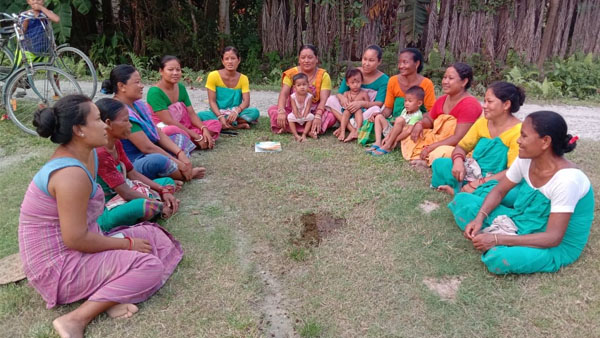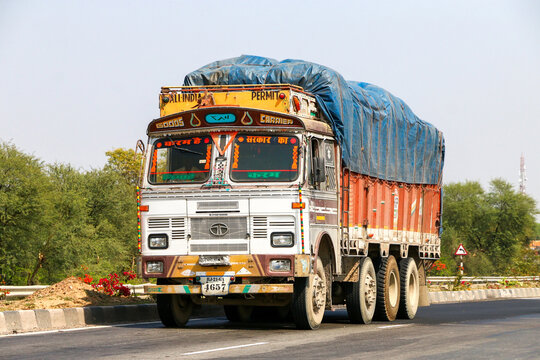By Joya Saikia
The journey of women’s empowerment in Assam and the larger North Eastern region of India has been both a challenging and inspiring saga. The history of the region is marked by a unique blend of cultural diversity, matrilineal traditions, and a deep-rooted sense of community that has shaped the lives and roles of women across different communities. However, despite these distinct traditions, the path to gender equality and women’s empowerment in this part of the country has not been without its obstacles. Today, as the region stands at the crossroads of social change and economic growth, there is a growing recognition of the importance of empowering women, not just in terms of social standing and education, but also in the realm of independence and entrepreneurship.
Women in Assam and the North East have traditionally held prominent roles within their communities, particularly in the matrilineal societies of Meghalaya, Mizoram, and Nagaland, where lineage and inheritance are traced through the mother. In these regions, women have enjoyed relatively more autonomy and power compared to their counterparts in other parts of the country. Yet, even within these progressive traditions, challenges remain—especially as modernization and urbanization bring new sets of social expectations and constraints.
The Changing Socioeconomic Landscape
In recent decades, the socio-economic landscape of Assam and the North East has undergone significant transformations. Political instability, insurgencies, and the challenges of geographical isolation have historically contributed to underdevelopment in the region. However, the last few decades have seen a concerted effort by both the state and central governments, along with non-governmental organizations, to uplift the region by improving infrastructure, education, and healthcare. As these changes continue to take root, there has been a growing push to involve women in the region’s economic growth, especially in the fields of entrepreneurship and leadership.
In Assam, women have made notable strides in several sectors, particularly in agriculture, education, and the arts. For instance, the self-help group (SHG) movement, which has gained momentum in Assam and the broader North East, has empowered countless women by providing them with a platform to collectively address economic challenges, access credit, and build entrepreneurial ventures. This model has proven effective in promoting women’s independence and enabling them to assert their economic presence, especially in rural areas where traditional avenues for employment have been limited.
The SHG model has encouraged women to come together, pool resources, and work collectively on various initiatives, ranging from handicrafts to agriculture-based enterprises. These women, who were once relegated to the sidelines of the economy, are now at the forefront of small-scale industries, especially in Assam, where tea gardens and silk weaving are among the major traditional industries. The women in these communities have not only become income generators for their families but have also found a sense of empowerment that stems from their newfound financial independence.
The Role of Education and Social Reforms
Education has been one of the cornerstones of women’s empowerment in Assam and the North East. Over the years, several initiatives have sought to improve access to education for girls and women, helping to break down traditional barriers that have prevented them from pursuing higher education or professional careers. In recent years, the government and various NGOs have focused on raising awareness about the importance of education for girls, particularly in rural areas, where societal norms and economic limitations have often kept women out of school.
Women’s education in the region is particularly crucial because it is the key to unlocking economic independence. Educated women are more likely to enter the workforce, start their own businesses, and contribute to the overall development of their communities. In Assam, for example, institutions like the Indian Institute of Entrepreneurship (IIE) in Guwahati have worked towards providing skill training and business development resources for women aspiring to become entrepreneurs. These institutions have been instrumental in not only offering training in areas like business management, marketing, and digital skills but also in providing financial literacy to women, who were once excluded from traditional economic structures.
Furthermore, social reforms over the years have also played a critical role in shifting societal attitudes towards women’s roles in the workforce. Laws like the Maternity Benefit Act and the Equal Remuneration Act, alongside policies that encourage women’s participation in governance and decision-making processes, have worked in tandem to create a more enabling environment for women to step out of their traditional roles and explore opportunities for professional and entrepreneurial growth.
The Rise of Women Entrepreneurs
The rise of women entrepreneurs in Assam and the North East marks a significant milestone in the region’s economic development. Women in this region are now venturing into diverse sectors, ranging from agriculture and handicrafts to technology and tourism. The traditional handicrafts of Assam, such as Assam silk weaving, bamboo products, and pottery, have long been dominated by women. Today, these crafts are finding a place in national and international markets, thanks to the entrepreneurial spirit of women who are transforming these age-old traditions into modern-day businesses.
In the tea industry, women have been a vital force in both the production and management of tea estates. The women workers in Assam’s tea gardens have historically been a part of a labor force that has contributed immensely to the success of the tea industry. However, there has been a recent push to ensure that women not only work in these estates but also have ownership stakes and management roles. This shift is crucial in ensuring that women in Assam’s tea industry enjoy both financial independence and a say in the decision-making processes that affect their livelihoods.
Additionally, women entrepreneurs in the North East are increasingly taking advantage of technology to scale their businesses. Platforms like social media and e-commerce have opened up new markets for women-led businesses, allowing them to reach a global audience. Women in cities like Guwahati, Shillong, and Imphal are using digital platforms to sell handmade products, offer consulting services, and promote local tourism. By integrating technology into their business models, these women are not only driving economic growth in their communities but also showcasing the potential of the North East as an entrepreneurial hub.
Overcoming Challenges
Despite the progress, several challenges remain in the path of empowering women in Assam and the North East. These include issues related to access to capital, patriarchal societal norms, and lack of adequate infrastructure in rural areas. Financial institutions are often hesitant to provide loans to women entrepreneurs due to gender biases and a lack of collateral. While the SHG movement has provided some relief, there is still a gap in terms of large-scale funding for women-owned businesses, especially those in high-investment sectors like manufacturing and technology.
Additionally, while social reforms have made strides in addressing gender inequality, the deep-seated cultural norms that restrict women’s autonomy still persist in many parts of the region. Issues such as child marriage, domestic violence, and gender-based discrimination continue to undermine the progress made in terms of women’s rights. These societal challenges require ongoing attention, both from the government and civil society organizations, to ensure that women are not only free from violence and discrimination but also empowered to make choices that affect their lives.
The Way Forward
The future of women’s empowerment in Assam and the North East lies in continued education, access to resources, and support for entrepreneurship. The role of the government in providing a conducive policy environment and targeted programs for women, particularly in rural areas, is critical. At the same time, the private sector, civil society, and international organizations must come together to provide women with the tools and platforms they need to succeed.
Empowering women in Assam and the North East is not merely about giving them access to jobs or business opportunities; it is about dismantling the systemic barriers that have historically held them back. It is about creating an environment where women are able to dream, create, and lead. The growth of women entrepreneurs in the region, despite the challenges, is a testament to the resilience and potential of women in Assam and the North East. As more women rise to leadership roles, break new ground in entrepreneurship, and inspire others to follow in their footsteps, they are paving the way for a future where women’s contributions are recognized and celebrated, and gender equality is the norm rather than the exception.
(the writer can be reached at joyasaikia1990@gmail.com)




